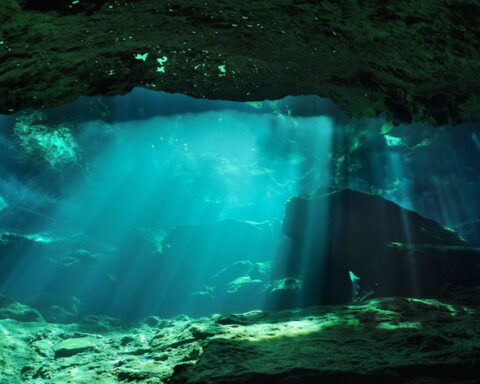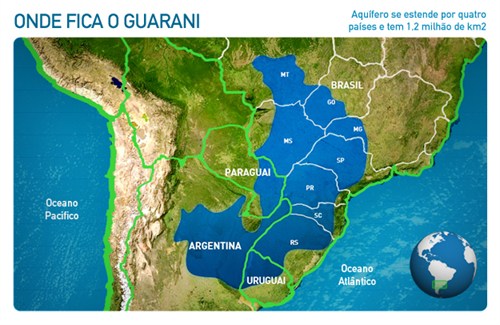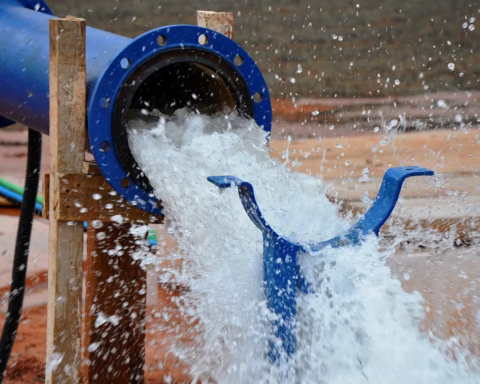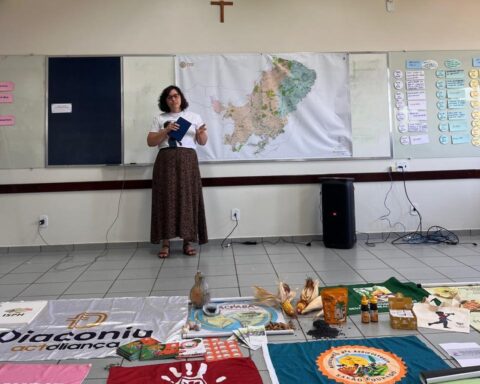Autor: Dr. Pilar Carolina Villar/International Water Law Project Blog
The following essay is by Dr. Pilar Carolina Villar, Professor at Federal University of São Paulo (UNIFESP). She can be reached at pcvillar [at] gmail.com.
The Agreement on the Guarani Aquifer (Portuguese, Spanish, English unofficial), ratified by Argentina, Brazil, Paraguay, and Uruguay, will enter into force on November 26, 2020. After a lengthy waiting process, the countries have finally and officially determined that they can now resume their efforts to pursue cooperation. The Guarani Aquifer was the focus of a long cooperative process that began within the epistemic community in the 1990s. That focus was transferred to the four Guarani States and international organizations between 2000 and 2009, which culminated in August 2010 with the signing of the agreement in San Juan, Argentina.
The water community extensively celebrate this achievement for the following reasons: a) it was a specific agreement for a transboundary aquifer, which is rare in the global context; b) the agreement specifically referenced United Nations General Assembly Resolution 63/124 (2008) pertaining to the Draft Articles on the Law of Transboundary Aquifers, thereby emphasizing the importance of this document; c) it included the main principles of international water law reinforcing their applicability to aquifers; d) it was the first specific agreement for a transboundary aquifer in Latin America and could encourage the conclusion of other similar agreements; e) it represented the continuity of the cooperative process established between the countries within the scope of the Guarani Aquifer System Project; and f) it was an example of preventive diplomacy, without conflicts over the use of groundwater.
However, over the past decade, the initial optimism for this treaty to enter into force had cooled down. Article 21 determined that the agreement would enter “into force on the thirtieth day following the date of deposit of the fourth instrument of ratification” with the Federative Republic of Brazil, which was assigned as the custodian of the agreement and the instruments of ratification. Argentina and Uruguay ratified the treaty by enacting Law No. 26,780/2012 and Law No. 18,913/2012, respectively. Brazil recognized it through Legislative Decree No. 52/2017 and Paraguay through Law No. 6037/2018. However, Paraguay’s instrument of ratification was not deposited with Brazil until October 2020.
The entry into force of this agreement allows the promised innovation initiated in 2010 to be implemented; however, the delay in the process raises the question of when and if this cooperative process will come to fruition. The agreement, which focuses on the transboundary water resources of the Guarani Aquifer System (SAG), represents a flexible cooperation tool and obligates the four aquifer States to manage them in accordance with the rules of international law. Table 1 shows the main characteristics of the agreement.

The entry into force of the agreement will allow the Guarani States to deepen the cooperation process presupposing the following steps: a) creation of a commission for the Guarani aquifer (art. 15); b) defining the arbitration procedure for settling disputes by issuing an Additional Protocol (art. 19); c) implementing groundwater cooperation programs (art. 12) and d) identifying critical areas, especially in border areas where the flow is transboundary. Of these actions, the most urgent undoubtedly is the creation of the commission, which is responsible for coordinating cooperation in compliance with the principles and objectives of the agreement. Without the creation of the commission with a statute to define its structure and powers, the agreement will have limited effectiveness in the regional context.
The realization of the international project Implementation of the Guarani Aquifer Strategic Action Program: Enabling Actions – with the participation of the four countries, the Global Environmental Facility as financier, and UNESCO as the executive agency, and with technical support from the Regional Center for Groundwater Management (known as CeReGAS) – can encourage the Guarani States to implement the agreement and establish the commission.








